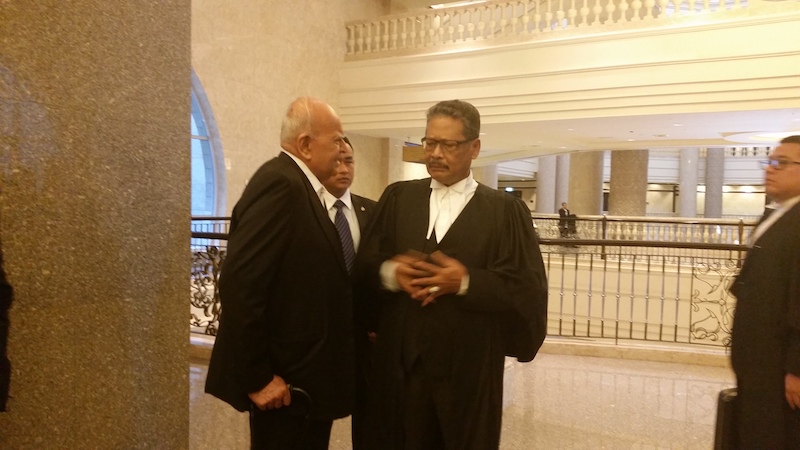PUTRAJAYA, Feb 22 — Attorney-General Tan Sri Mohamed Apandi Ali will head the government’s challenge of the landmark court decision that found a Sedition Act provision to be unconstitutional.
Mohamed Apandi, who personally appeared this morning to lead the team from the Attorney-General’s Chambers that is seeking the Federal Court’s leave to appeal the decision, acknowledged his rare appearance in the courts.
“Yes, the appeal proper I will handle it myself because, to me, this is about public interest.
“This is something of [importance], public interest and it involves the criminal law and civil law, which I want to have it finally decided by the highest court,” he told reporters here when met at the Federal Court.
Conceding that his participation was not normal, Apandi reiterated that the case was “very important”.
Mohamed Apandi is representing the government of Malaysia in its appeal bid against PKR politician Mat Shuhaimi Shafiei’s successful constitutional challenge against a provision of the Sedition Act.
Earlier, Mohamed Apandi had in the customary introduction of lawyers on both sides named Mat Shuhaimi’s lead counsel Datuk Seri Gopal Sri Ram — a former Federal Court judge — as his “sahabat dan abang” (friend and elder brother).
Chief Judge of Malaya Tan Sri Zulkefli Ahmad Makinudin chaired the Federal Court’s three-man panel who heard the government’s application for leave to appeal, with the two other judges being Tan Sri Abu Samah Nordin and Tan Sri Zaharah Ibrahim.
Last November 25, the Court of Appeal unanimously ruled that the Sedition Act’s Section 3(3) ― which states that intention of the person charged with sedition is “irrelevant and it was enough to prove their remarks had seditious tendency ― is unconstitutional.
The Court of Appeal declared that Section 3(3) is invalid as it had violated the Federal Constitution’s Article 10 — which guarantees Malaysians’ right to freedom of speech.
Under Section 3(3) which the appellate court has declared unconstitutional, the prosecution does not have to prove that a person intended to commit sedition to secure a conviction, and merely has to prove the accused’s remarks or actions had seditious tendency.
The Court of Appeal’s ruling in favour of Mat Shuhaimi effectively means the prosecution now has to prove intent before a person can be convicted of sedition.
Mat Shuhaimi had mounted the constitutional challenge against the Sedition Act, which was used to charge him on February 7, 2011 over his blog posting said to be made on December 30, 2010.
Mat Shuhaimi kept his Sri Muda state seat in Election 2013 with a whopping majority, but a sedition conviction could potentially disqualify him from holding office as a lawmaker.
First-time offenders under the Sedition Act face a maximum three-year jail term or maximum fine of RM5,000 or both, with either a one-year jail term or a RM2,000 fine, enough to make Shuhaimi lose his seat.



















